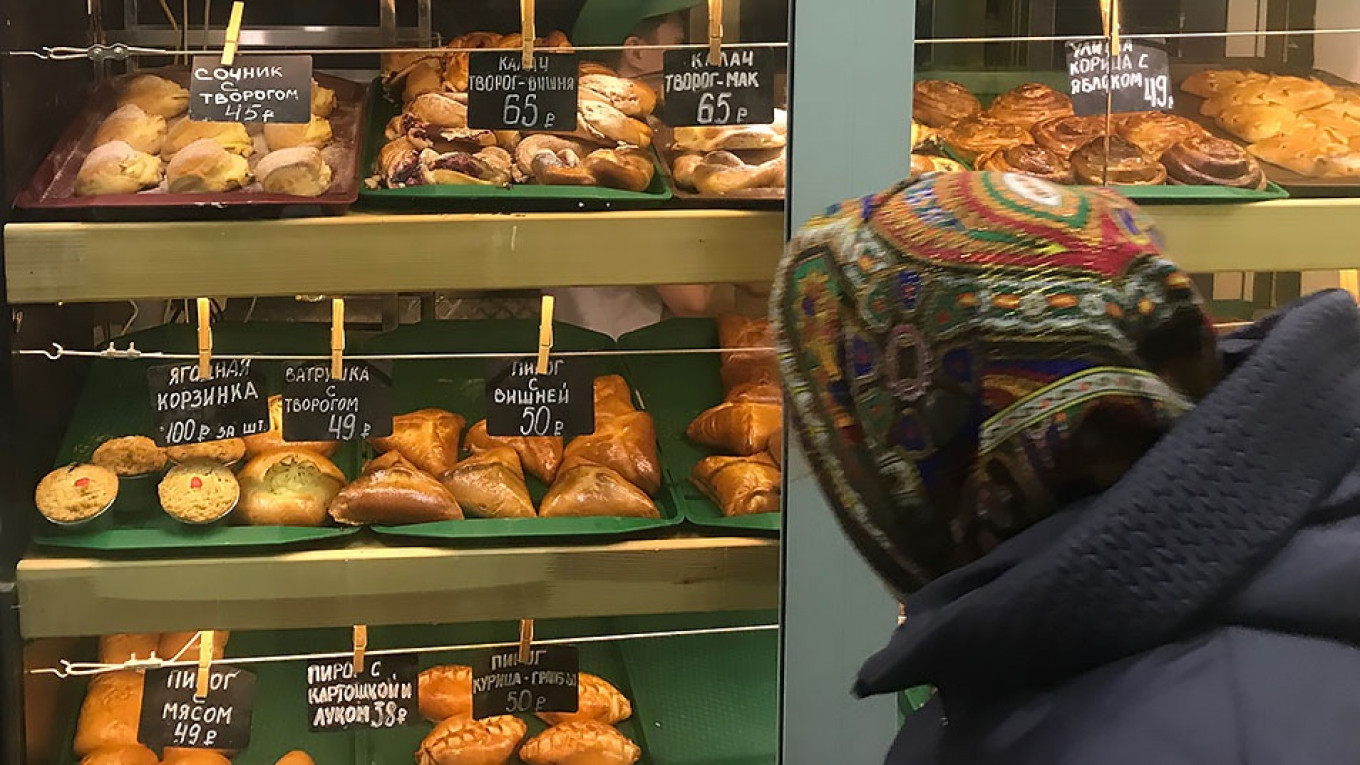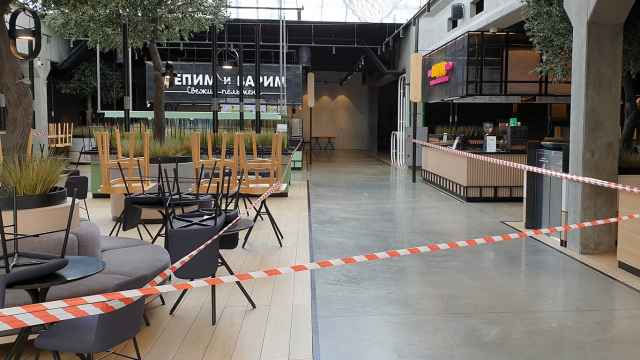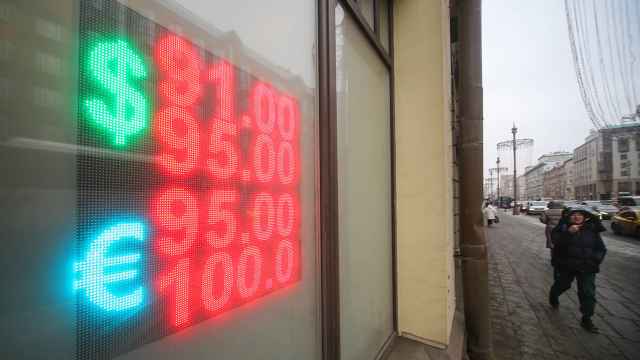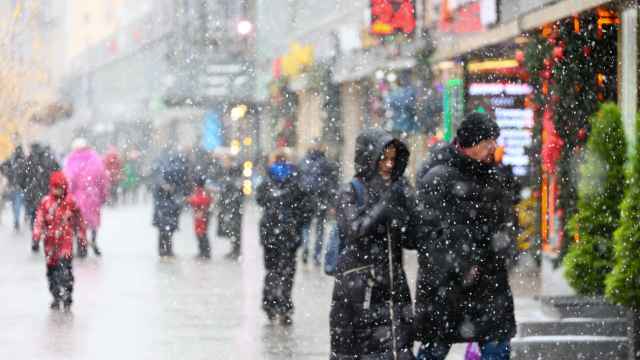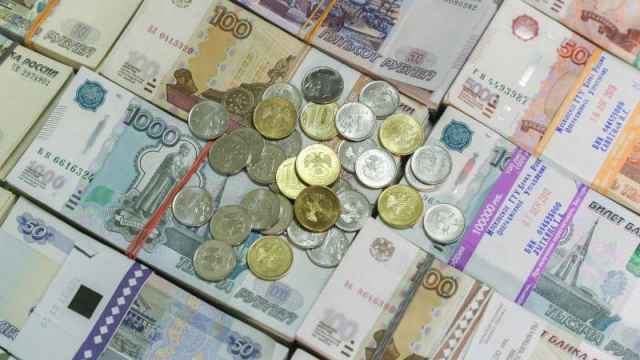Vladimir Anshakov hadn’t planned on becoming a baker.
But when the law school graduate was between jobs several years ago, he was spending more time at home with his teething toddler who had a penchant for gnawing on bread crusts. After the new father checked the ingredients, his career took an unexpected turn.
“What I read scared me,” he says, “and I decided I wanted to create a product that Muscovites wouldn’t be afraid to feed to their children.”
So in 2013 Anshakov, now 35, opened a bakery in the working class district on the northeastern outskirts of Moscow where he was born, raised and still lives.
It hasn’t always been easy. Two years after he opened Bread & Pizza, the business took its first serious hit when Western sanctions levied against Russia for annexing Crimea from Ukraine put a dent in consumer spending.
But a new crisis, which has become acute over the past few months, has been even more difficult, Anshakov says. Over the final months of 2018, he lost between 15 to 20 percent of profits because of drastic increases in food prices, followed by fresh spikes in the first weeks of the new year.
“I’m down about 30 percent compared to two years ago,” Anshakov said on a recent afternoon at his bakery. “I’m really worried.”
Anshakov isn’t the only one feeling the squeeze. Maria Kudryashova, a consultant whose clients are primarily bakeries in Moscow, says the industry nationwide has been hit hard. “It’s an unpleasant moment,” she said. “Anytime prices rise, it’s painful.”
The cost of key ingredients like sugar and eggs grew by around 28 and 26 percent respectively last year, while grains and flour rose by approximately 7 to 20 percent. In the first two weeks of 2019, inflation jumped beyond the Central Bank’s expectations, with the price of flour growing by 2.6 percent and prices overall increasing by nearly 1 percent, the Vedomosti business daily reported.
Economists say that a poor harvest, rising oil prices (leading to higher transport costs) and a devalued ruble due to sanctions are the root causes of the problem. Added to that, they say, is a recent hike in the value-added tax (VAT) rate.
That raise, from 18 to 20 percent starting Jan. 1, was part of a controversial government plan announced last summer to replenish state coffers. When the State Duma passed the measure in July, critics worried that it would drive up gas prices and inflation.
“This year the increased VAT is the key shock,” said Tatiana Yevdokimova, chief economist for Russia at Nordea Bank. “It affects practically everything.”
The announcement last summer was overshadowed by unpopular pension reforms. But now that the new rate has come into effect, consumers are feeling the pinch.
“Prices at the supermarket have gone up across the board since New Year’s,” said Vitaly Fedotov, a 40-year-old cab driver, who had stopped in to Bread & Pizza for a loaf of bread.
Like most of Anshakov’s clientele, Fedotov is local, a regular and working class. He praised Anshakov for not having raised his prices, but the baker confided to The Moscow Times that his hand had been forced. By the end of this week, he expects his prices will grow by 5 to 7 percent.
“I held out for two years, but now I really I have to,” Anshakov said. “My customers aren’t wealthy so it’s going to hurt them. When I raised the price of my bread by two rubles ($0.03) the last time, I heard from customers for months.”
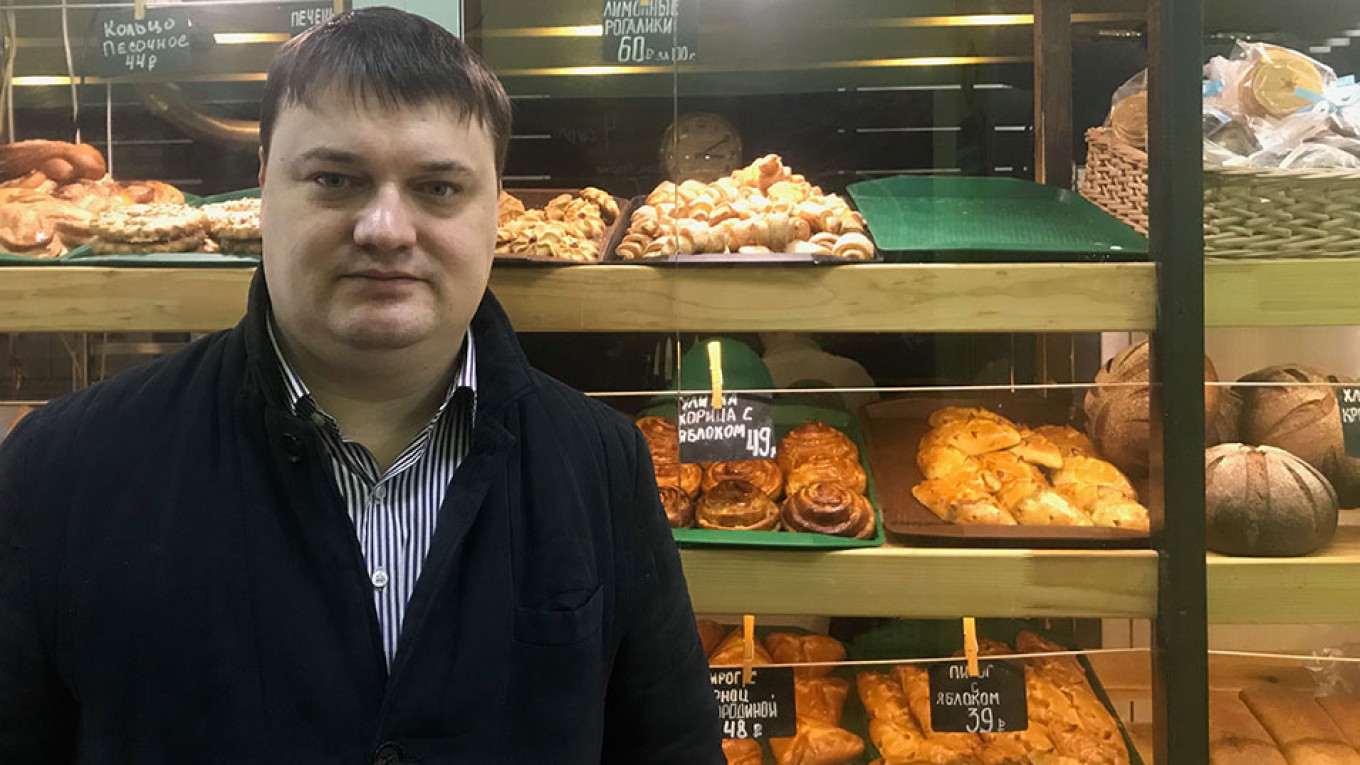
Among the products that will become more expensive are cheap pirozhki — stuffed pastries which are a staple of the Russian diet. That is especially true for the country’s poor, says food historian Olga Syutkina, which she said makes up a significant chunk of the population. “And so it is namely them that rising prices will hit the hardest,” she said.
But it is not just bakeries serving the working class that are taking a hit.
Yaroslav Komarevtsev, the deputy general director of the high-end Bread & Co chain based in Moscow, says this is the most “panicked” he has felt the market since he joined the family business four years ago.
On the last working day of 2018, Komarevtsev said he received notices from each of Bread & Co’s suppliers that they would be raising their prices.
“Everyone seems to be scrambling to hold onto their piece of the pie,” Komarevtsev told The Moscow Times.
In response, Komarevtsev, 23, said that the company raised its prices on Jan. 10 by an average of 5 percent. In the days since, its locations, all in the city center, have heard negative feedback from customers.
“You have to understand, people’s real incomes are stagnant,” Komarevtsev says. “So even for the premium consumer, a price rise of 5 to 10 rubles is sensitive.”
Some bakers are less concerned than others. Roman Bunyakov, the self-described “godfather” of the Moscow baking scene who runs his own store just outside the capital’s center, is one. He says tighter wallets lead to increased demand for baked goods to fill stomachs on a budget. “But bakers still can’t raise their prices by a lot or they’ll lose their customers,” Bunyakov acknowledged.
Komarevtsev, likewise, is trying to stay upbeat. He pointed to a revolution in Moscow’s food scene over the past four years, despite waves of sanctions. The ban on foreign products, he said, had spurred creativity and innovation among local producers. “To a degree, crises can spur growth,” he says.
Whether this moment will turn into a full-fledged crisis, though, is something Komarevtsev says he will judge in the summer. “We’ll really have to assess our business model then,” he says. “That’s the season when demand for our products is at its lowest.”
As for Anchakov, he said he would see how things go before taking any drastic steps. He has already ruled out closing shop, regardless of whatever difficulties may come. “Not under any circumstances,” he says. “I love this business too much.”
A Message from The Moscow Times:
Dear readers,
We are facing unprecedented challenges. Russia's Prosecutor General's Office has designated The Moscow Times as an "undesirable" organization, criminalizing our work and putting our staff at risk of prosecution. This follows our earlier unjust labeling as a "foreign agent."
These actions are direct attempts to silence independent journalism in Russia. The authorities claim our work "discredits the decisions of the Russian leadership." We see things differently: we strive to provide accurate, unbiased reporting on Russia.
We, the journalists of The Moscow Times, refuse to be silenced. But to continue our work, we need your help.
Your support, no matter how small, makes a world of difference. If you can, please support us monthly starting from just $2. It's quick to set up, and every contribution makes a significant impact.
By supporting The Moscow Times, you're defending open, independent journalism in the face of repression. Thank you for standing with us.
Remind me later.



